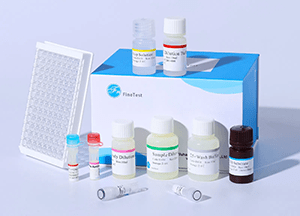Cytokines play an important role in signal transduction between cells. Intercellular substances are synthesized and secreted by stimulation. They regulate cell growth, differentiation and immune response to participate in cell activity via binding with relevant receptors. Cytokines contain interleukins, inflammatory factors, matrix metalloproteinases, growth factors, chemokines, colony-stimulating factors, interferons, tumor necrosis factors etc.
Related Targets
Interleukins
Interleukins are cytokines produced by a variety of cells and have effect on many cells. They play an important role in maturity, activation, proliferation, and immune regulation of immune cells. Besides, they are involved in multiple physiological and pathological reactions of human body.
Leukocyte Differentiation Antigens
CD differentiation cluster or group, also called leukocyte differentiation antigen, refers to different lineage of leukocytes appear or disappear during normal different stages of differentiation, maturity and activation. In physiology, CD molecules have many applications. Usually, they are used as important cell receptors or ligands, including T cells, B cells, myeloid cells, NK cells, platelets, activated antigens, adhesion molecules, endothelial cells, and cytokine receptors etc. Also as surface markers for cell identification and isolation, they're involved in cell growth, maturation, differentiation, development, migration, and activation.
Matrix Metalloproteinases
Matrix metalloproteinases (MMPs, also called matrixins) are zinc-dependent proteolytic enzymes. They can degrade various proteins in extracellular matrix (ECM). MMPs play an important role in many biological processes and diseases, e.g. embryogenesis, normal tissue remodeling, wound healing, angiogenesis, atherosclerosis, arthritis, cancer and tissue ulceration etc.
| MMP-1 | MMP-2 | MMP-3 | MMP-7 | MMP-8 | MMP-9 | MMP-10 |
| MMP-11 | MMP-12 | MMP-13 | MMP-14 | MMP-15 | MMP-16 | MMP-17 |
| MMP-19 | MMP-24 | MMP-25 | MMP-26 | MMP-28 |
Growth Factors
Growth factors are polypeptide substances which regulate multiple effects (e.g. cell growth and other cell functions) via high affinity and specific-binding with cell membrane receptor. Usually, growth factors are secreted by normal cells without drug toxicity and immune reaction. During the research on physiological action, some of them are applied in clinical treatment. IL-2 has been used for cancer treatment and the effects on kidney cancer and melanoma are obvious. It's also used as immunomodulator for autoimmune diseases. IL-3 is applied in the treatment of bone marrow failure and platelet deficiency. Epidermal growth factors are applied in human burn, trauma, diabetes skin ulce, bedsore, varicose skin ulce and corneal injury etc. They can promote wound healing.
Chemokines
Chemokines are small cytokines or signaling proteins secreted by cells. They can induce chemotaxis of nearby reactive cells. Chemokines play a key role in chemotactic migration of cells. Cells migrate to the source of chemokines along the signal of increased concentration of chemokines.
Colony-stimulating Factors
During the in vitro research on hematopoietic cells, some cytokines can stimulate different kinds of hematopoietic cells to form cell colony in semi-solid medium and are named as colony-stimulating factors. These factors can stimulate proliferation and differentiation of granulocyte metrocyte, and also enhance the function of mature granulocytes. They paly an important role in immunologic process of non-specific cells resistant to infection. When pyogenic bacteria or its the toxin invade into human body, G-CSF rapidly increases in the serum or body fluids. After the infection is controlled, G-CSF deceases to normal level. So the positive G-CSF indicates bacterial infection.
| EPO | G-CSF | GM-CSF | MCSF | SCF | TPO | LIF |
Interferons
Interferons are glycoproteins with high specificity. So interferons of animals are invalid for human. Interferons have the effect of anti-virus and tumor, inhibit cell proliferation and regulate immunity.
| IFN-α | IFN-β | IFN-γ | IFN-α2 | IFN-α4 | IFN-α6 | IFN-α7 |
| IFNA8 | IFNE | IFNW1 | IFNA1/13 | IFNA10 | IFNA14 | IFNA21 |
Tumor Necrosis Factors
TNF-α is derived from monocytes and phagocytes. TNF-β is derived from T lymphocytes. Although their structures are different, the biological activity is similar. They can not only cause bleeding, necrosis, and killing of tumor tissues, including inflammatory response effect against infection, but also affect regulation and induction of immune cells.
| TNF-α | TNF-β |
Hot Research Topics for Cytokines
|
|
||
|
|
|
|
|
|

